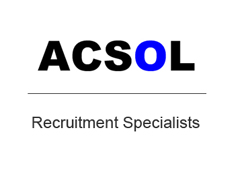Reed.co.uk have suggested five curveball questions a hiring company might use at a job interview. They will never be asked by me I hasten to add because I hate these type of questions! Nevertheless this is a good read and some useful answers are provided…..
If you were an animal, what would you be?
The archetypal interview curveball. However, whether it’s the type of animal they are, the superpower they’d choose, or even determining the correct colour packaging for a packet of salt & vinegar crisps (always blue, obviously), this question is essentially a test of a candidate’s creativity. In other words, it’s not what they answer, but how they answer that counts.
Any answer which brings in some necessary skills for the role, whilst also revealing a little bit more of their personality, is definitely a winner
Good answer: ‘I think I’d be a duck. They’re always calm on the surface, but hustling like crazy to get things done underneath’.
Bad answer: ‘Definitely a Tiger. Grrrr…’
Every CV has one lie in it. What’s yours?
Research shows that as many as one in five jobseekers admits to lying on their CV.
However, even the most confident of candidate’s is unlikely to bring up any blurring of the facts without some kind of prompting.
OK, so it’s still unlikely they’ll admit whether they’ve been ‘creative’ with your chronology, and answers here should always be in the negative. However, if they’re able to use a little humour to break the tension, and convincingly reassure you that everything you’ve written is above-board, you might be on to a winner.
You might even catch out the any serial offenders before they’ve gotten started. A plan with no draw-backs.
Good answer: ‘OK, so “active lifestyle” may have been a bit of a stretch. I do go and sit in the sauna in my gym from time-to-time, if that counts? On a serious note though, I don’t believe there are any lies on my CV. I believe integrity is very important and that starts with your CV’
Bad answer: ‘Pass’
Would you rather be liked or feared?
While this could also be considered a character question, the fact that it’s almost a deliberate trick question means it could be considered in the curveball bracket.
There’s only one way a candidate should consider answering a question like this: they just shouldn’t answer it. You may have presented them with a straight choice, but it’s the unspoken third option that could make all the difference.
Let’s face it, no-one really wants to be feared at work, but it’s equally important not to come across like a pushover. The best candidates will always acknowledge the original framing of the question, but explain why it would be impossible for them to choose from what’s on the table.
Good answer: ‘Well I certainly wouldn’t want to be feared. Personally I think fear is a terrible motivator, and could lead to some uncomfortable situations. Everyone wants to be liked, but it isn’t always possible. Sometimes you have to do unpopular things to get the job done. I’d much sooner be respected, but have my co-workers understand that I always do my best for the team as a whole.’
Bad answer: ‘I want people to be afraid of how much they like me.’
Where does your boss think you are now?
In other words, are you hiring the kind of employee who would openly lie to your face?
This question is a good measure of character, and shouldn’t be taken lightly. Admitting that they were happy to lie to their current employer in any way, shape or form, is unlikely to be an endearing trait. Even ‘white lies’ have the potential to do more harm than good.
The most reliable candidates will either explain that they booked a day’s leave in advance, or managed to work it into their current schedule. Notable exceptions include temporary or freelance roles, and redundancies. If it’s clear that they have no long-term future at a company, only the most unreasonable of bosses would stand in their way.
Good answer: ‘I booked today as annual leave. I know colleagues who have lied about their whereabouts in the past, but it’s not something I’d be comfortable doing’
Bad answer: ‘I’m not sure really. I just kind of walked out…’
Sell me this pen…
Finally, the perennial interview ‘sales-pitch’ favourite.
However, the beauty of this question lies far beyond an assessment of a candidate’s sales skills. Instead, it’s all about needs identification.
It’s all about the questions you’re asked, if they can correctly identify any issues you have, and demonstrating how their product is the perfect way to solve the problem.
To make it extra difficult, we recommend only ever selecting particularly ugly pens.
Good answer: ‘Do you do a lot of writing in your spare time?’
Bad answer: ‘You know how you were saying earlier that you needed a pen…’



